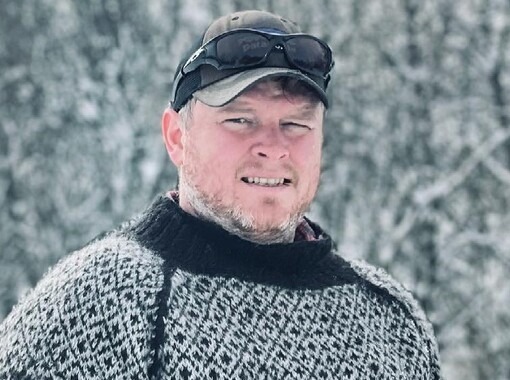Doctoral defence in Civil Engineering - Andri Gunnarsson

Aðalbygging
The Aula
Ph.D. student: Andri Gunnarsson
Dissertation title: Modeling of energy and mass balance using remote sensing for seasonal snow and glaciers in Iceland
Opponents:
Dr. Jason E. Box, Research Professor, Department of Glaciology and Climate, The Geological Survey of Denmark and Greenland (GEUS)
Dr. Peter L. Langen, Professor at the Department of Environmental Science at Aarhus University, Denmark
Advisor: Dr. Sigurður M. Garðarsson, Professor at the Faculty of Civil and Environmental Engineering, University of Iceland and Dean of the School of Engineering and Natural Sciences, University of Iceland.
Doctoral committee:
Dr. Jessica D. Lundquist, Professor at the University of Washington
Dr. Óli G. B. Sveinsson, Manager of the Hydropower Division at Landsvirkjun
Dr. Tómas Jóhannesson, Coordinator of Glaciological Research at the Icelandic Met Office
Chair of Ceremony: Dr. Bjarni Bessason, Professor at the Faculty of Civil and Environmental Engineering, University of Iceland
Abstract:
In this research, satellite data were used to create gap-filled products of daily snow cover and surface albedo in Iceland from 2000 to 2021 at a 500 m horizontal resolution. The products relied on data collected from the two satellites carrying the MODIS sensor, Aqua and Terra, providing sub-daily overpass. A process pipeline was developed to merge the daily data and apply temporal aggregation to reduce the high number of cloud-obscured pixels. Due to high cloud cover, yielding many pixels obscured by clouds even after merging and temporal aggregation, machine learning models were further developed to fully reclassify the remaining unclassified data. The output from this process was a spatio-temporal product with capabilities for further analysis and extraction of various statistical parameters describing snow cover and albedo properties in Iceland. To better understand the seasonal and inter-annual variability and possible trends, a surface energy balance model was developed utilizing remotely sensed snow cover and albedo as prognostic variables. Surface albedo was used to constrain net shortwave radiation forced at a snow-covered surface and fractional snow cover provides an aerial constraint for seasonal snow outside of glaciers by estimating the fractional snow cover of pixels, scaling the calculated melt energy accordingly. Large-scale atmospheric circulation anomalies and surface energy balance were analyzed to study relationships of the data and understanding the drivers of variability. The results show high seasonal and inter-annual variability in surface energy balance, snow cover and surface albedo for snow- and ice-covered surfaces in Iceland. The high variability in surface energy balance reflects the high variability of albedo, especially for glaciers. The impacts of light-absorbing particles (LAPs), both from tephra deposits due to volcanic eruptions and dust deposits from airborne dust, were estimated to provide understanding of the extent, magnitude and impact on surface energy balance and showed a significant melt enhancement for years with high LAPs deposits. Sea surface temperature impacts cloud cover in Iceland during the melting season. Recent abrupt changes in the sea surface conditions near Greenland and SST south of Iceland correlate strongly with cloud cover in Iceland during the melt season. Cloud cover acts as a modulator on the incoming short-wave radiation available for surface forcing, i. e. surface energy balance. Large-scale patterns such as the Greenland Base Index (GBI) and the North Atlantic Oscillation (NAO) also showed significant correlation to controlling parameters relating to the surface energy balance.
About the doctoral candidate
Andri Gunnarsson finished junior college from Menntaskólinn at Akureyri in 2004, a bachelor's degree in mechatronic engineering from Reykjavík University in 2009 and a master’s degree in Civil and Environmental Engineering from University of Iceland in 2012. Since 2012 Andri has been a project manager for hydrological research at Landsvirkjun with emphasis on water resource assessment for hydro power, glaciers and seasonal snow research. Since 2017 Andri has worked towards his PhD with the academic year 2017-18 spent at the University of Washington through the Valle Scholarship program.
Andri Gunnarsson



